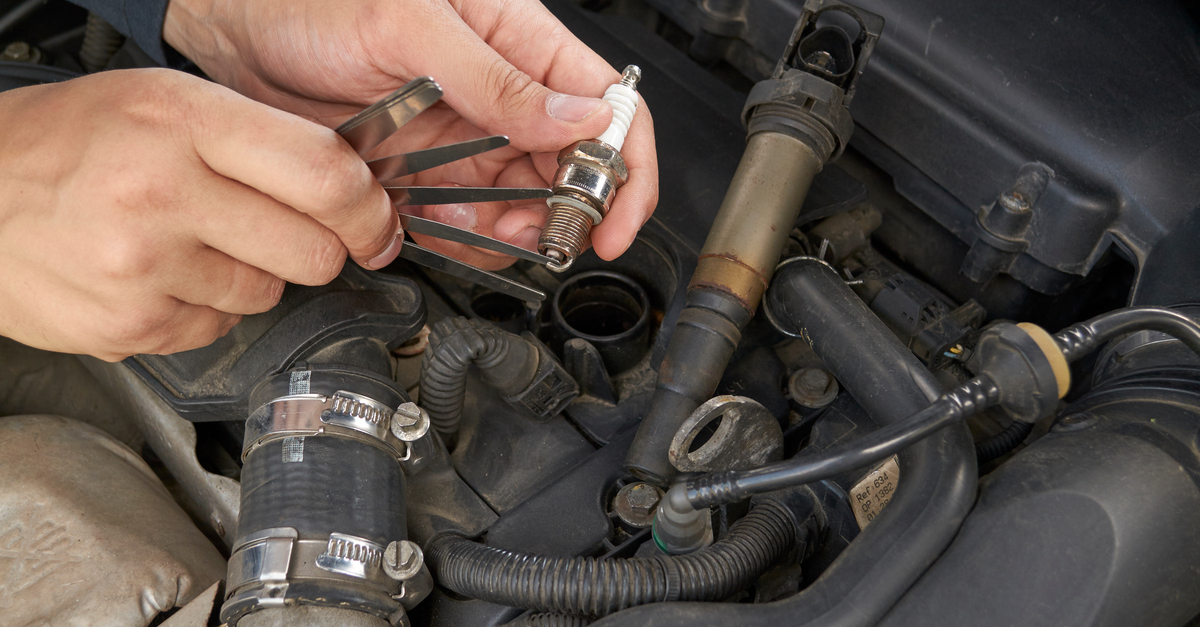Posted on 7/15/2021

Are you thinking of summer vacations? Taking a long drive down to the beach? Alternatively, maybe, you just want to get in the car, turn on the AC and go for a spin. Whatever your plans, you need to remember to care for your car during these coming months when the weather can see extremely high temperatures. Auto repair is probably not the first thing you want to think of in the summer, but your car can break down more easily and, at the very least, it can be agreed that finding yourself stuck on some highway with a tire blow out, or having to finish a long trip without a functional car AC system is not the preferred way to spend a summer day. In the summer, the sweltering temperatures can make daily driving harder on your vehicle. You need to pay attention to certain things to make your car summer-ready, so a little preventative maintenance can go a long way towards making your car fully functional during these months. From checking your air conditioner to making sure it cools proper ... read more
Posted on 7/1/2021

Did you know that without a properly functioning spark plug, your car would not even start? That is how important this tiny device is to your vehicle if you are using a gas-fueled combustion engine. How spark plugs work The spark plug emits electricity across the engine to cause an ignition spark on the other side. This spark will then fire the mixture of air and fuel inside the engine to create the internal combustion for the car to start. DIFFERENT TYPES OF SPARK PLUGS There are five main types of spark plugs: • Silver • Double platinum • Copper • Single platinum • Iridium SILVER SPARK PLUGS For these spark plugs, the tips of their electrodes are silver coated. You will mostly find them in old European vehicles and motorcycles since they do not last long. DOUBLE PLATINUM These spark plugs are more durable than silver spark plugs. Both its ground and center electrodes have a platinum coating. For the spark plugs with broken and wasted ignition sys ... read more
Posted on 6/15/2021

Driving is a complex endeavor, partially due to the inability to detect any unpredictable obstacles in a road environment. As a driver, controlling the aspects of your role in these situations is your responsibility. A ride can be so smooth, bumpy, or even shaky depending on various factors. The reasons wholly depend on the shape of your vehicle or environmental factors. Some issues can get out of control when driving. Below are some effective tips to curb that bumpy or shaky drive and assist in ensuring your driving experience is safe and hassle-free. ENVIRONMENTAL FACTORS Environmental contributors are out of your control, so it is important your vehicle is prepared to handle the factors that may come your way and your driving remains defensive. Weather related contributors to difficult drives can include snow, mist, and fog due to the visibility issues these contributors compromise. With mist and fog, the likelihood you will miss avoiding a pothole or roadblock increases. Snow, o ... read more
Posted on 6/1/2021

According to the National Transportation Safety Board report, around 33,000 accidents occur due to tire repair damage. Based off this stat, it is clear that proper maintenance of tires is essential for not only your vehicle’s safety but the safety of those on the road as well. There are various factors that can affect your tires and their performance, but the primary causes for this type of repair need is sidewall and alignment damage. In this article, we will focus on sidewall especially as it is the most prominent cause for repair as well as ways maintain and assess the status of your vehicle’s tires. Overload When there is too much weight in your vehicle, it is susceptible to an overload blowout. When a vehicle is overloaded, the tires can overheat and explode. Although this problem is more common with larger vehicles like an SUV or truck, overload to the point of causing damaging can still occur if your vehicle is carrying a lot of weight for its weight and is ex ... read more
Posted on 5/15/2021

Many people can go the entirety of their ownership over their vehicle without ever changing the transmission fluid. Although some vehicles market a lifetime fluid on the transmission fluid and will advise against changing it so that the vehicle does not begin to slip while changing gears, experts would still highly recommend otherwise. WHEN TO REPLACE Changing your transmission fluid is advisable every 50,000 miles on average to maintain the vehicle in the best running conditions possible. Automatic vehicles use a torque converter to shift gears, and the torque converter and the transmission are not physically connected so the fluid is what allows the movement to continue between them. The fluid allows the mechanical spinning of the engine to be transferred to the transmission using fluid pressure and fluid friction. You need clean fluid to assure that there is no unwanted build-up or friction in this process. MAINTENANCE Maintaining the transmission fluid clean is the most i ... read more